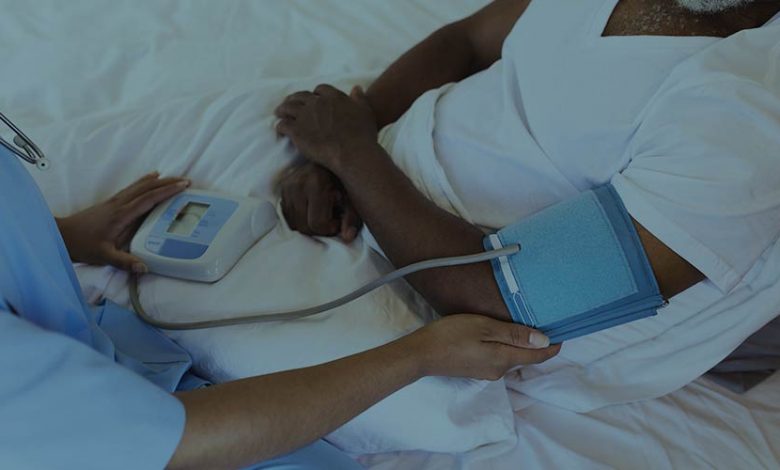Why it is necessary for you to go for regular medical checkup
Promoting the value of preventive care, expanding access to healthcare services, and dispelling misconceptions can encourage more individuals to prioritize their health through regular check-ups.

In a world where our daily lives are filled with hustle and bustle, it’s easy to overlook our most valuable asset: our health. A prevailing misconception is that medical check-ups are exclusively for the sick.
Those who feel generally healthy and experience no noticeable symptoms may dismiss the need for such examinations, erroneously believing that only unwell individuals require medical attention.
This perspective, especially prevalent among the younger population, often leads to the neglect of seemingly minor health issues, with some even regarding a hospital visit when not feeling sick as an invitation to illness.
Mild ailments like headaches, muscle or joint pains, earaches, or toothaches are often dismissed, with the hope that they will spontaneously resolve.
Assessing your health status
A medical check-up is a comprehensive assessment of an individual’s overall health status by a healthcare professional.
The purpose of a medical check-up is to monitor and evaluate various aspects of a person’s physical and sometimes mental health.
It is often done on a routine basis, usually annually or as recommended by a healthcare provider, to detect any potential health issues, assess risk factors, and provide guidance for preventive care.
A typical medical checkup may include but not limited to medical history, physical examination, blood tests, imaging tests, counseling among others.
We live in a toxic environment
According to Dr Isaac Muyanja, a medical doctor at Hoima Regional Referral Hospital, we live in a toxic environment where we are constantly exposed to microorganisms that cause a number of pathologies.
Some can be fought by the body’s immune system while some can overwhelm the body and become overt.
“Regular medical checkup can help in identifying such conditions in their less harmful states that can better be managed well before they become complicated,” he says.
He further explains that the body is a complex structure that is made up of cells that make organs which eventually make systems.
“Cells are constantly replicating with varying turnovers and that can come with associated mistakes which can only be identified with regular checkup,” he says.
The prevalence of sickle cell disease in Uganda is estimated to be 0.8%. This means that about 1 in 125 people in Uganda has sickle cell disease.
On the other hand, the prevalence of sickle cell trait in Uganda is 13.3%. This means that about 1 in 7 people in Uganda has sickle cell trait.
Dr Muyanja notes that checkups help in reducing propagation of certain genetic related diseases like sickle cell and that reduces on the health burden of the victims and the health systems.
Checkups can be preventive
Dr Duncan Ndahura, a medical doctor at C-Care Uganda says investing in health goes beyond treating illnesses; it encompasses preventive measures that foster overall well-being.
“Regular checkups enable doctors to assess risk factors, offer personalized health advice, and recommend lifestyle modifications that can significantly reduce the likelihood of developing certain diseases. It’s a proactive approach that empowers individuals to take control of their health,” he says.
Personalized healthcare plans
He adds that they help patients get tailored health care plans since everyone has a different health profile.
“The checkups allow doctors to develop personalized healthcare plans based on an individual’s medical history, family background, and lifestyle choices.
This tailored approach ensures that medical interventions are precisely aligned with the individual’s needs, optimizing the effectiveness of treatments and minimizing unnecessary procedures,” he explains.
In addition, he says regular check-ups offer peace of mind. “Knowing that you’re in good health and actively managing your well-being can reduce stress and anxiety.
On the flip side, if an issue is detected, early awareness provides an opportunity for prompt action, often alleviating unnecessary worry about your health,” he explains.
Why people do not go for routine medical check ups
For some, the mere thought of a medical check-up can trigger intense fear or anxiety. This fear may be associated with needles, medical procedures, or even the possibility of receiving unwelcome health news. The psychological discomfort can be a powerful deterrent.
Access to healthcare is a fundamental concern. Individuals lacking health insurance or facing financial constraints often grapple with the perceived financial burden of medical services. The fear of exorbitant bills can lead people to postpone or avoid check-ups altogether.
Early disease detection good
On the other hand, not everyone fully comprehends the pivotal role that routine check-ups play in preventive healthcare. The value of early detection and the significance of these examinations may be underestimated, leading to their neglect.
In conclusion, the reasons behind the evasion of routine medical check-ups are diverse and deeply rooted in personal, psychological, and societal factors.
Recognizing these barriers is essential for healthcare professionals, policymakers, and educators to address them effectively.
Promoting the value of preventive care, expanding access to healthcare services, and dispelling misconceptions can encourage more individuals to prioritize their health through regular check-ups.
Ultimately, the journey towards improving healthcare adherence demands a collaborative effort that transcends individual decisions and societal influences.







